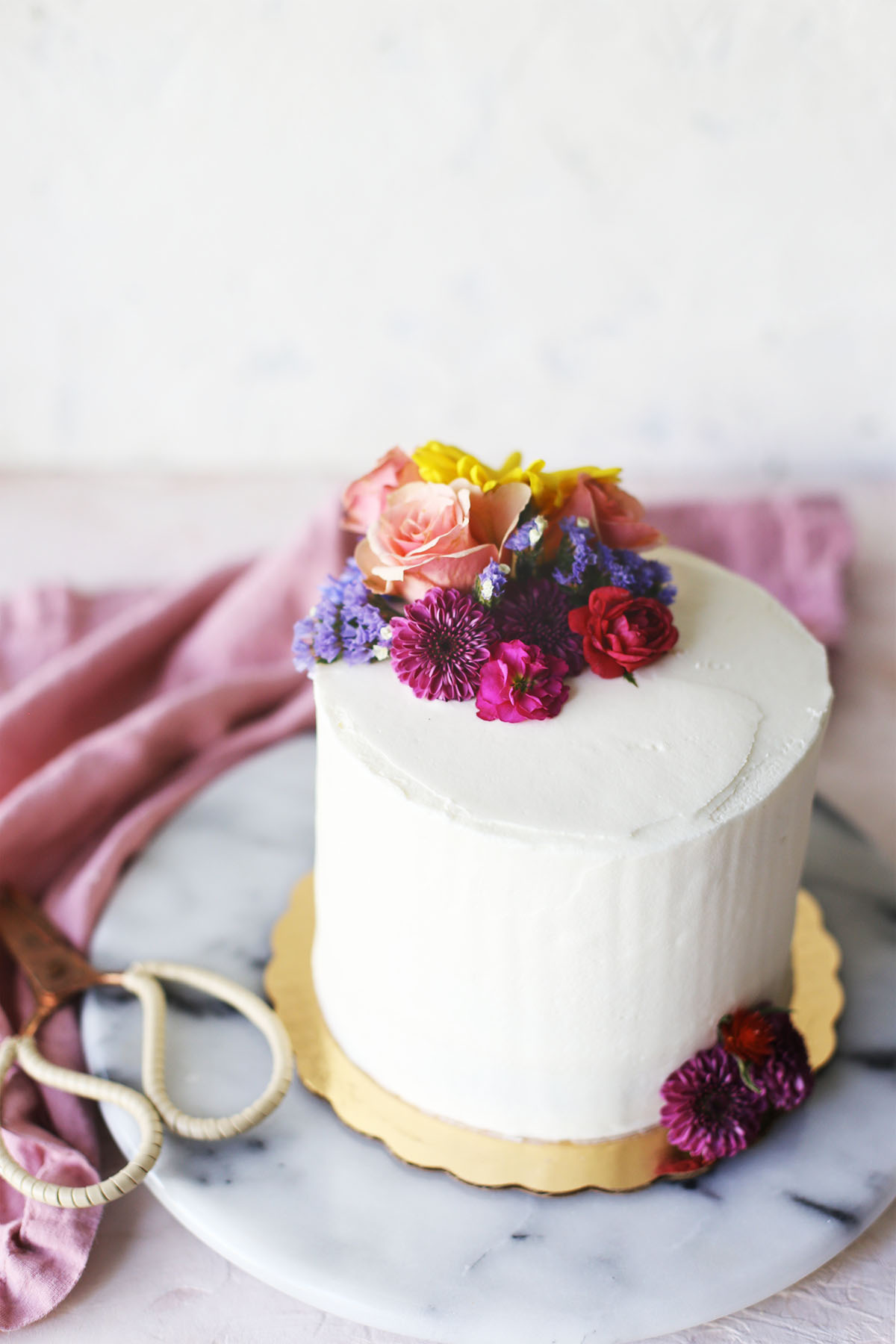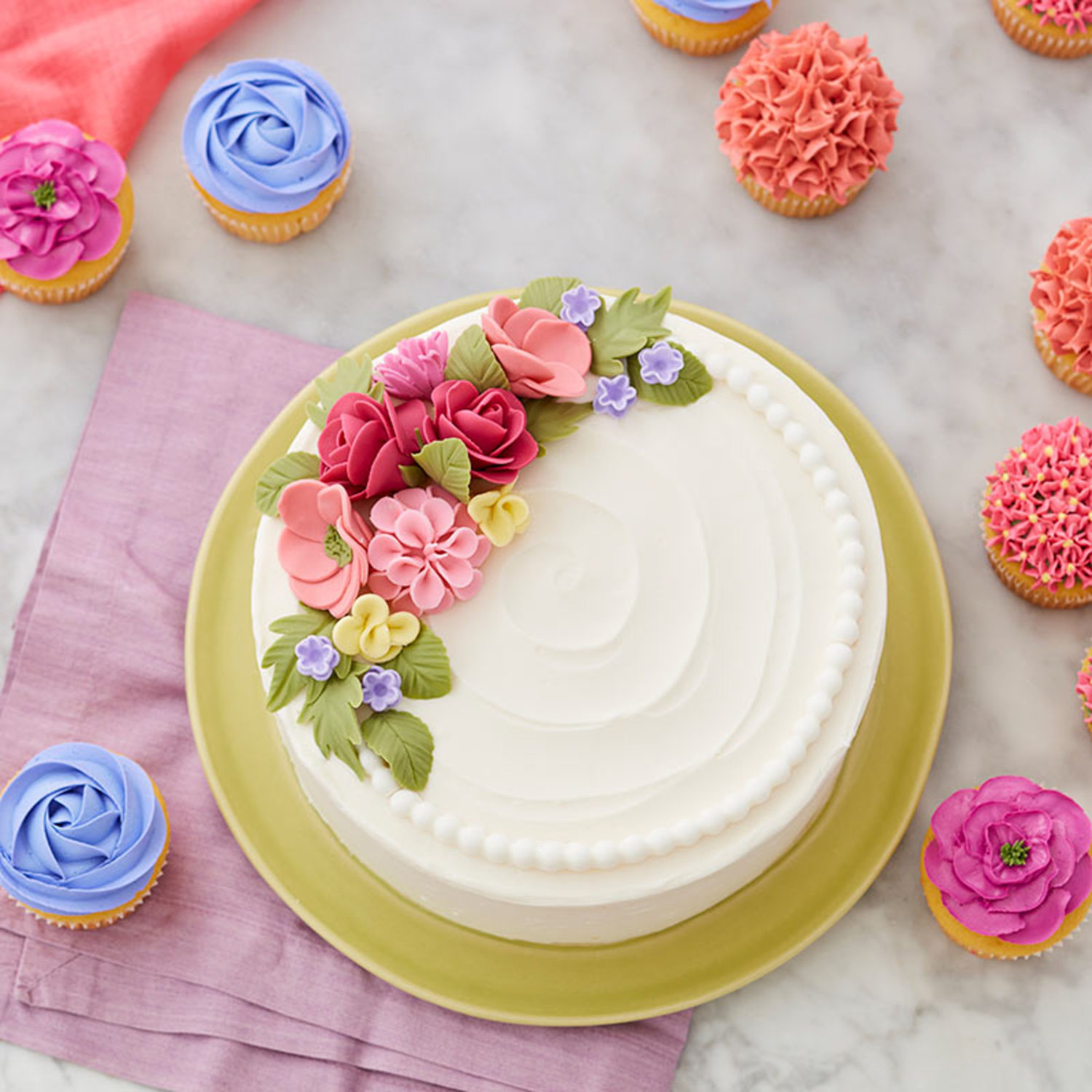When it comes to cake decorating, nothing adds a touch of elegance and artistry quite like flower cake decorations. Whether you’re preparing for a birthday party, wedding, or just a casual gathering, floral designs can bring a cake to life. In this guide, I will share my personal experiences, expert tips, and creative ideas to help you master the art of flower cake decorations.
Why Choose Flower Cake Decorations?
Flower decorations are not just visually appealing; they can also convey emotions and themes. Here are some reasons to consider using flowers in your cake designs:
- Natural Beauty: Fresh or edible flowers can create stunning, Instagram-worthy cakes.
- Versatility: Floral designs can suit any occasion, from rustic to elegant styles.
- Flavor Enhancement: Some edible flowers add unique flavors to your cake!
Types of Flowers Suitable for Cake Decoration
Not all flowers are created equal when it comes to cake decorating. Here are some of the most popular types suitable for culinary use:
1. Edible Flowers
Edible flowers are safe for consumption and can add flavor, color, and texture to your cakes. Some popular options include:
- Roses: Classic and aromatic, perfect for romantic occasions.
- Lavender: Offers a delightful fragrance and a hint of sweetness.
- Pansies: Vibrant colors and a slightly grassy taste.
- Marigolds: Bright orange and yellow petals with a citrus-like flavor.
- Violets: Sweet, edible, and lovely for a vintage look.
2. Non-Edible Flowers
While beautiful, non-edible flowers should only be used for decoration. Here are some examples:
- Peonies: Luxurious and fragrant; though not edible, they make a stunning visual impact.
- Calla Lilies: Elegant and sleek, perfect for sophisticated cake designs.
- Hydrangeas: Full blooms that create a textured look.
How to Prepare Flowers for Cake Decoration
Preparing flowers for cake decoration is crucial for both aesthetics and safety. Here’s how to do it:
1. Selection
Choose fresh, organic flowers. Always ensure they are free from pesticides and chemicals.
2. Cleaning
Gently rinse the flowers with cold water to remove any dirt or insects. Pat them dry with a paper towel.
3. Removal of Non-Edible Parts
Remove any non-edible parts such as stems and leaves that may not be safe to consume.

4. Storing
Store the prepared flowers in the refrigerator in a damp paper towel until you’re ready to use them.
Techniques for Decorating Cakes with Flowers
Now that you have your flowers ready, let’s dive into various techniques for incorporating them into your cake designs:

1. Simple Floral Accents
Place a few flowers on top of a frosted cake for a minimalist style. This works well with cakes that have a clean finish.
2. Floral Wreaths
Create a beautiful floral wreath around the base or top of the cake. Use small flowers and greenery for a balanced look.

3. Cascading Flowers
For a dramatic effect, position flowers to cascade down the side of the cake, creating a waterfall effect.
4. Whimsical Floral Toppers
Add a cluster of flowers at the top for a whimsical, garden-like feel. This is great for birthday cakes or baby showers.

Comparing Fresh and Piped Buttercream Flowers
| Feature | Fresh Flowers | Piped Buttercream Flowers |
|---|---|---|
| Appearance | Natural and vibrant | Can be customized and detailed |
| Flavor | Adds unique flavors | No additional flavor |
| Preparation | Requires cleaning and handling | Time-consuming to pipe |
| Durability | May wilt over time | Long-lasting when done right |
Pros and Cons of Using Flower Decorations
Pros
- Adds stunning visual appeal
- Can enhance flavor
- Versatile for various occasions
Cons
- Requires careful selection and preparation
- Some flowers may not be safe for consumption
- Fresh flowers may wilt over time

Tips for Stunning Flower Cake Decorations
Here are some valuable tips to ensure your flower cake decorations shine:
1. Color Coordination
Choose flowers that complement the cake’s frosting and theme. Consider using a color wheel for inspiration!
2. Size Matters
Ensure the size of the flowers is proportionate to the cake. Larger flowers suit taller tiered cakes, while smaller flowers work well with petite cakes.

3. Use Natural Elements
Incorporate greenery or herbs (like mint or rosemary) for contrast and added texture.
4. Experiment with Placement
Test different placements before finalizing to find what looks best.
Storing Cakes with Flower Decorations
Proper storage is essential for maintaining the freshness of both the cake and the flower decorations:
1. Refrigeration
Store cakes with fresh flowers in the refrigerator if they won’t be served immediately.
2. Avoid Moisture
To prevent wilting, be cautious with moisture. Ensure cakes are well sealed without trapping humidity.
Frequently Asked Questions (FAQs)
1. Are all flowers safe to eat?
No, not all flowers are edible. Make sure to research and only use flowers that are safe for consumption.
2. How can I make my piped flowers look realistic?
Practice is key! Use different piping tips, and watch tutorials to learn how to create lifelike petals.
3. Can I use store-bought flowers for cake decorations?
It’s best to use flowers grown specifically for culinary use. Store-bought flowers may be treated with chemicals.
4. How far in advance can I decorate my cake with flowers?
For fresh flowers, decorate your cake no more than a few hours before serving to ensure freshness.
5. What should I do if the flowers start to wilt?
If the flowers start to wilt, remove them immediately to maintain the cake’s appearance.
Conclusion: Your Floral Inspiration Awaits!
Flower cake decorations bring creativity and beauty to your baking projects. With the right techniques and flowers, you can transform an ordinary cake into an extraordinary centerpiece. Whether you’re a seasoned baker or a novice, I encourage you to experiment with floral designs and showcase your creations at your next event. Remember, the most important part is to enjoy the process and let your creativity bloom!